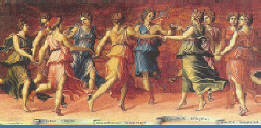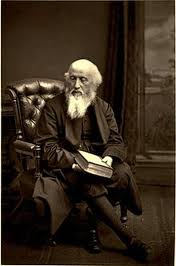|
|
Barnes was born at Bagber, in the Blackmore Vale area of Dorset to a lowly farming family
where he acquired a command of the local dialect and attended the elementary school until
the age of 13 whereupon he was engaged as copy clerk with a Dorchester solicitor.
He took advantage of the town facilities to study science, history, archaeology, philology
and languages as well as music and the plastic arts turning at an early age to poetry
writing in both dialect and standard English. He published Poems of Rural Life in 1844
which ran to several editions. This was followed by Hwomely Rhymes (1859) and Poems of
Rural Life in Common English (1868). He also wrote several pamphlets on social
conditions and education.
At age 22, he opened a school at Mere, Wiltshire but returned to Dorchester in 1835 after
his early years of marriage, celebrated in 1827, to open another school which gained
a high reputation for excellence. He gained an external Divinity degree from
Cambridge University becoming ordained in 1847 and subsequently became rector
of Winterborne Came with Whitcombe near Dorchester in 1862 remaining until his
death in 1886.
He was a purist in the English language seeking unsuccessfully to expunge classical
and foreign influences and to replace them with Old English substitutes. His poetry
was praised by numerous worthies of the day but tended to be overshadowed by its
dependence upon dialect which deprived him of wider recognition; but the rustic
simplicity of his settings endeared him to many of his contemporaries and remains
attractive to subsequent generations.
|

